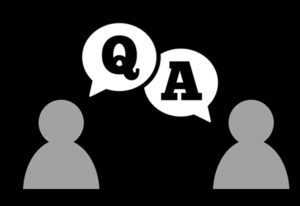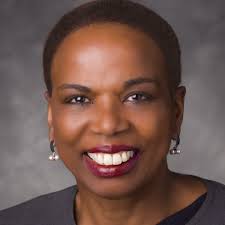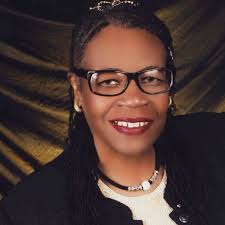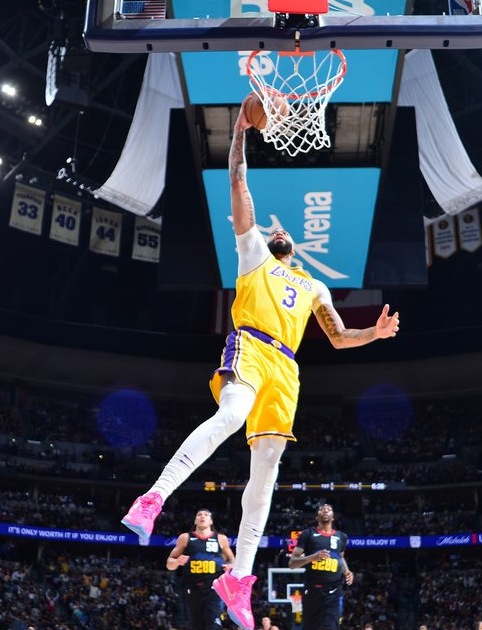
By Darlene Donloe
Contributing Writer
LOS ANGELES — Judy Belk has been at the top of her game for decades.
After nine years as president and CEO of the California Wellness Foundation, the poised, elegant and always confident Belk has stepped down from the role, effective Aug. 31.
She will take on the position of senior advisor for the foundation through Dec. 31, after which she will officially retire.
Richard Tate, her partner at the foundation for the last seven years, has officially been named to replace Belk and began his term as president and CEO on Sept. 1.
After a week of goodbyes where she received accolades and a number of gifts, Belk, who has been a successful corporate leader for more than 25 years, signed her last purchase order as president while working from home Aug. 31. It was officially her last day and her last official act.
On that day, she reminisced about her time at the California Wellness Foundation, one of California’s largest public health philanthropic institutions, and other foundations and corporations she helmed or worked at throughout her career.
“I used the skills I got at Northwestern, the gift of storytelling to advocate,” said Belk, who has had 13 of her opinion pieces published in the Los Angeles Times and other news outlets. “I use storytelling every day on the job. I learned the power of storytelling. On a good day, I think of myself as a writer.”
Belk, who has always been fascinated with storytelling, said the California Wellness Foundation was the first job where she got paid to write.
“What moves people is not to just talk about gun violence, but to tell them the impact the gun violence has had on my life,” said Belk, who regularly speaks on race, social change and organizational ethics. “My older sister was murdered 44 years ago and telling them the impact of losing her to gun violence means a lot. It devastates not only the lives of those who knew her but the trauma it has on loved ones. I admire Cal Wellness because of its gun violence prevention efforts.”
Belk has had an impressive run in the world of business, finance and nonprofits.
“I didn’t know this kind of job existed when I was in college,” she said. “I didn’t know you could make a living giving away someone else’s money.”
Belk, who has worked hard to have her perspective heard, wasn’t just handed the job of president and CEO. The Alexandria, Virginia, native was clearly the woman for the job. She earned it with each career stepping stone she conquered. Her distinguished career is evidence of her multifaceted dynamism.
For decades Belk has skyrocketed her way into the apex of major corporations, forcing the industry to sit up and take notice.
She took the reins at the California Wellness Foundation on April 7, 2014 with clear goals.
“I really wanted to help people,” she said. “I wanted to raise Cal Wellness’s voice. I wanted a healthy endowment. I also wanted to see more people who look like me in key positions.”
Prior to the California Wellness Foundation, Belk was the senior vice president of Rockefeller Philanthropy Advisors, a position she had held since 2002.
“The Rockefeller family has a legacy of giving,” said Belk who worked there for 11 years. “They came up with the idea of starting a nonprofit to help high net worth donors be thoughtful and strategic about their giving. I opened the West Coast and Midwest offices. We worked with individual donors who had at least a million dollars. I launched it from the ground up. It’s one of the largest in the country now.”
Belk was also the vice president of global public affairs at Levi Strauss & Co., where she led a global team in pioneering work on AIDS education and prevention, and women’s economic development.
She also launched Project Change, a national antiracism initiative, which was recognized by President Bill Clinton with the first Ron Brown Award for Corporate Leadership in 1998.
She’s proud to have developed and led the company’s philanthropic efforts in post-apartheid South Africa.
With all that she’s accomplished, and it’s vast, Belk thought now was the right time to make a change.
“It was time,” she said.
Belk’s philanthropic track record is impressive but the married, mother of two, who graduated from Northwestern University and then received her master’s degree in public administration from Cal State East Bay, is ready to start the next chapter of her life.
I recently caught up with Belk to talk about her resolute career.
DD: When you were first starting out after college, what did you see for yourself?
JB: I thought I was going to pursue communications. I had an internship at CBS Television. I took a job at Leo Burnett in Chicago. Two weeks before I graduated, I got a telegram from KCBS radio telling me they had a job for me. My entire professional career has been in California. I should have paid them. It was $400 a month before taxes. I really fell in love with California. The job had me pulling wires, getting coffee, doing beat checks for traffic and calling police departments. I had to learn about the city and the politicians.
DD: How did you get into the nonprofit and philanthropy arena?
JB: I couldn’t afford to keep working at CBS Radio. I did a stint at an advertising agency. I worked in public affairs. I loved it. But there was a professor who said I could help him write a grant for a documentary on land use. It turned out to be my entry into philanthropy. I got the grant. I was curious. They pay you to do this? I got my master’s and decided I’d like to go into management.
DD: So what did you do?
JB: The first thing I did was go to work for the city of Sunnyvale, California. I began to learn about philanthropy. It was the early days of the Silicon Valley. They created a job in their philanthropic department. I also worked at Mervyn’s for five years, managing its philanthropic efforts.
DD: Why did you leave Rockefeller?
JB: I wanted to run a major private foundation. I had been a critic of major private foundations. I will never work for one again unless I’m leading it. I had always admired California Wellness because of its gun violence prevention efforts. It was the most diverse organization I ever worked in. The majority of the staff is folks of color. The majority of the board are folks of color and women. In some places, there weren’t a lot of people who looked like me.
DD: What are you most proud of regarding your time at the California Wellness Foundation?
JB: Raising our voice. Before I arrived, Cal Wellness did great grant-making, but it was quiet. The other is our offices were in Woodland Hills. I felt Woodland Hills and downtown San Francisco were not aligned with our mission of being close to the people, so I moved our offices to downtown Los Angeles and Oakland. Third, the gun violence. $47 million in grants, but our endowment and how it is invested should be mission-aligned. We are close to over 50% of diverse managers. It’s important to have a healthy endowment for our grant-making.
DD: Now that you’re going to have free time, what are you going to do?
JB: I’m not going to take up golf. I’m not going to retire. Ryan is having a kid. Now I have time to be around. The kids (Ryan and Casey) and Roger (her husband) didn’t think I was going to do this, but I did.
“The Q&A” is a feature of Wave Newspapers asking provocative or engaging questions of some of L.A.’s most engaging newsmakers or celebrities.
Darlene Donloe is a freelance reporter for Wave Newspapers who covers South Los Angeles. She can be reached at ddonloe@gmail.com.












